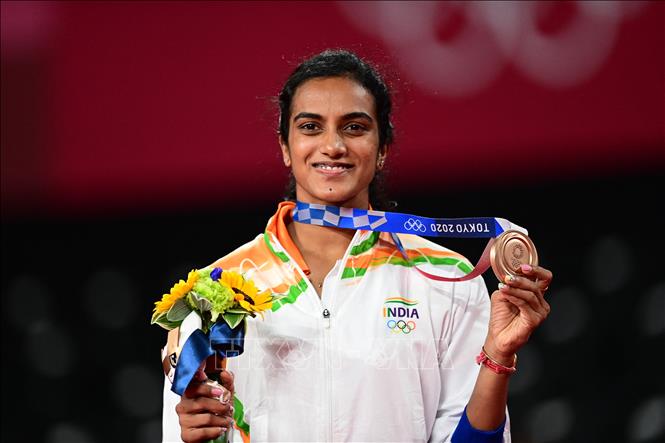The 2020 Tokyo Olympics gathered many incredible athletes from all around the world. One of them was badminton player Pusarla Venkata Sindhu or PV Sindhu of India who has been famous in all corners of India for her achievements in winning medals in major international tournaments including the World Championships and the Olympic Games. However, OV Sindhu has also been known for another aspect that is kinda opposite of everything that she was recognized for, Intellectual property legal lawsuits.
Sindhu is an amazing athlete who has brought back so many glories for her people. She has become India’s first female athlete to win two Olympic medals, having won a silver medal in Rio de Janeiro and recently, a bronze medal in the 2020 Tokyo Olympics.
Nonetheless, although achieving great pride at the Tokyo Olympics, Sindhu didn’t seem to be happy cause according to her, she has been taken advantage of her Olympic moment. This issue is normally known by experts in the field as moment marketing.
Specifically, moment marketing may be defined as an act by companies or brands to engage in trendy, raging issues, putting their opinions on the matter in such a way as to attract the audience in the digital space.
According to the badminton player and her management firm, Baseline Ventures, the companies that took advantage of her Olympic moment are Perfetti Van Melle, P&G, Pan Bahar, Apollo Hospitals, Aditya Birla, Vicks, and Happydent. These brands were allegedly used her name and face without her consent.
For clarity, after her performance at the Tokyo Olympics, these brands have posted congratulatory messages to her for her sports exploit in Tokyo. There is nothing wrong with this per se, except the fact that these companies placed their brand names and logos in their congratulatory messages which of course included Sindhu’s name and image.
The badminton player is considering taking legal action and seeking Rs 5 crore in damages from each brand that engaged in moment marketing after her “Olympic moment.”
Is it an IP dispute or a marketing violation?
For Baseline Ventures managing director Tuhin Mishra, it is an infringement of the badminton player’s intellectual property rights.
However, according to Indian IP laws, there is no protection for sports personalities.
Sudhansu Sahoo, a legal associate at Khurana & Khurana in New Delhi stated that: “There is no trademark or any sort of IP protection for the players, as Indian athletes do not register their name or copyright their unique elements as practiced in most countries in the west. Hence, it cannot be said that there has been an infringement of the athlete’s IP rights in the instant matter.”
Nonetheless, the alleged violating companies can’t relax yet because although their action might not be a violation of IP rights, it is indeed a violation of the privacy of sports personalities and celebrities, according to the provisions of the Advertising Standards Council of India Code (ASCI).
Sahoo further gave his advice for PV Sindhu: “As of now, the best thing for PV Sindhu is to send a strong legal notice against the brands, which is important in the context so that all brands, in general, are made aware that this is a gross violation of the athlete’s rights and should be avoided at all cost. There are many unique ways of advertising in today’s digital era, and most companies including Amul have used such ways to advertise and get into the trend without flouting the rights of any person.”
At the moment, after many heated discussions, many brands that used Sindhu’s Olympic moment have taken down their congratulatory posts. Baseline Ventures is now working with the rest of the brands to solve this matter.
Yet, what will be the impacts or influences from the case of IP and Sports intertwined at PV Sindhu’s Olympic moment to the sports industry and IP laws in India?
Answering this question, Sahoo stated: “In the absence of any regulatory framework for sports law, the foremost requirement is legislation taking into consideration all the different aspects of sports into place. Most of the sports legislations are archaic and there is no single or concrete regulatory framework which governs all aspects of sports in India, which is a dire requirement considering the growth of sports in the country and the issues with it.”
Sahoo continued: “Issues like the present one are challenging new areas to tread on in the digital age, and reforms to these rules, so that guidelines and regulations have a reasonable balance, will have to emerge and it needs to start from somewhere, maybe this time!”
You can see a list of India IP firms here.

